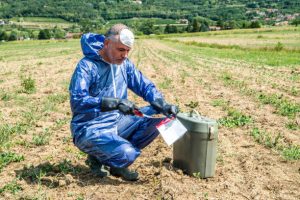Table of Contents
ToggleEating organic food is more than just a matter of taste — it can help you lead a healthier life. In fact, there’s evidence that organic produce has higher nutrient levels than conventional produce and that pesticides are linked to developmental issues in children. Organic farming practices have also been shown to have an important role in fighting climate change and reducing your exposure to toxic heavy metals. So if you’re looking for one thing on your grocery list this year, make it: organics!
If you’re looking to start a healthier journey, it is important to differentiate fact from myth. That is why I also wrote this article debunking some keto diet myths and misconceptions you might have heard. I know that you will find it helpful!
Research suggests organic food has a higher nutrient level than conventional produce.

Organic farming practices exclude the use of pesticides, synthetic fertilizers, genetically modified organisms (GMOs), antibiotics, or growth hormones. Moreover, organic foods actively provide a substantial amount of antioxidants such as vitamin C and E. These antioxidants effectively combat free radicals within the body, thus serving as a protective measure against cancer. In comparison to non-organic counterparts, organic vegetables generally possess higher vitamin content due to the minimal chemical treatments applied during processing.
To determine if a product is organic, examining the label proves most effective. However, it is essential to note that even in the absence of an official USDA logo, it is advisable to inquire and seek clarification. The Environmental Working Group (EWG) has compiled a range of useful guidelines to aid in identifying organic foods.
Pesticides are linked to developmental issues in children
Pesticides pose a toxic threat to people and animals, underscoring the crucial need to prevent exposure for oneself and family. Furthermore, certain pesticides have been linked to grave health concerns such as cancer, birth defects, developmental disorders in children, and even debilitating illnesses like Parkinson’s disease.
In order to mitigate pesticide usage and its associated risks, organic farming adopts a proactive approach by completely avoiding synthetic chemicals, except for salt. Instead of relying on potentially harmful pesticides in household, yard, schoolyard, or garden settings, organic farmers embrace natural techniques like crop rotation and composting, while shunning chemical fertilizers. This not only safeguards the environment but also minimizes waste, benefiting everyone involved.
Organic farming practices can help fight climate change

Increased sunlight exposure accelerates the growth of plants, making organic farming surpass conventional methods in efficiency. Consequently, it reduces the energy demand and minimizes the release of carbon dioxide into the atmosphere.
Furthermore, organic techniques yield higher output per hectare, resulting in reduced reliance on fertilizers, pesticides, and water consumption. This is attributed to decreased evaporation from the soil during cultivation, which occurs when plants are irrigated.
Organic food is not treated with synthetic hormones or antibiotics
You should seek organic foods grown through natural methods, avoiding harmful chemicals, pesticides, and artificial ingredients or preservatives. Ensure that the products you choose are free from animal byproducts and cultivated without the use of pesticides, chemical fertilizers, or artificial additives. Look for farmers employing techniques like planting cover crops, such as clover, to prevent erosion and enhance soil fertility.
Adopting no-till farming practices allows seeds to germinate while remaining covered. Implementing crop rotations based on soil quality and planting seeds at varying depths promotes growth until harvest. By prioritizing these methods, you can enjoy truly organic and environmentally friendly food options.
Eating organic can decrease your exposure to toxic heavy metals

Organic food is grown without synthetic pesticides, hormones or antibiotics. It’s also not irradiated, meaning that it can’t be treated with radiation like conventional foods are. This means that the natural chemicals in organic foods are less likely to be toxic than synthetic chemicals.
Organic farming does not use genetic modification (GM), which has been linked to potential harm for consumers and animals alike.
Organic food is worth the extra cost for the health benefits it provides
First and foremost, it promotes better health. The utilization of pesticides in conventional farming poses threats to both human health and the environment. By selecting organic produce, you actively diminish your exposure to these harmful toxins. Organic farmers adopt a reduced chemical approach since they lack access to synthetic pesticides or fertilizers that may be detrimental to humans and animals alike.
Additionally, organic farms, being smaller in scale than their non-organic counterparts, offer limited space for crop rotation between crops. Consequently, they exhibit enhanced sustainability in terms of soil quality and possess superior defense mechanisms against pest infestations and disease outbreaks that would otherwise decimate an entire traditional farm field.

Conclusion
The benefits of organic food are too many to count. We hope that by reading this article, you’ve gained some insight into the ways in which organic foods are better for your health. For example, organic farming practices can help fight climate change and reduce the use of pesticides. Additionally, there is evidence suggesting that organic produce has a higher nutrient level than conventional produce. While eating organic might not be a necessity for keto or other diets, it can make a difference in how your body deals with the nutrients that you’re consuming. That is why i wrote an article going more in depth about if you should eat strictly organic on keto. Im sure you will find it helpful!









